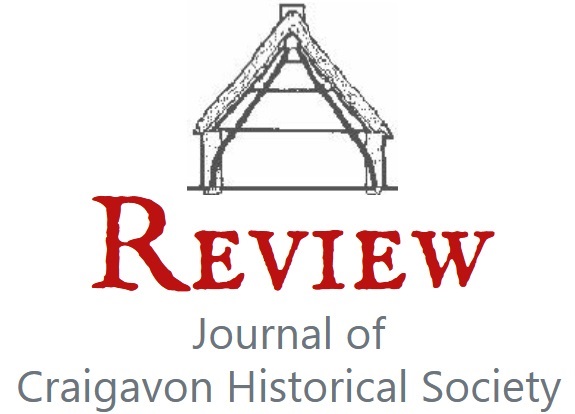
1996/97 - 1997
That lovely place Ardmore
by Kieran Clendinning
Isn't it remarkable that memory lives precariously on what the eyes have seen and the ear has heard? The reason I mention this is because I recall that amiable man the late Harry McCann, of Edward Street, - may heaven be his bed - used to take great delight in reciting a verse or two about "My Native Place Ardmore."

Elementary in its make-up the poem is never-the-less, plentiful and prickly in it's homage to that lovely place Ardmore. As the poem is fairly long I propose only to include two verses. The first is very flowery:
T'was in the summer season
In the flowery month of June,
The honey suckle in the hedge
Sends forth it's sweet perfume.
The concrakes in the meadows
And the swallows flying o'er,
All seem to enhance with beauty
My native place Ardmore.
The last verse subscribes to and sings of the supremacy of the scenic shore that spans Ardmore.
They boast of Scotland's "Bonnie Doon;"
But tourist seem to say,
Killarney far exceeds it
And so does Killagh Bay.
Lurgan is my market town
Where I purchase all my store,
And all these things are but second
To my native place Ardmore.
The words were written in 1905 by John McAleese, and emphasise the intense pride and love he had for legendary land around Ardmore. And there is no doubt about it, everyone that has traversed the tarred road that sweeps along the Bay Shore, from Ardmore to Derrytrasna, is enthralled by the view of the waters that stretch wide across to old Ardboe, the slopes of Slieve Gallion and distant Tyrone.
While the area, presents a broad and beautiful vista of a quiet watered land, there is in many ways an air of sadness that haunts the shoreline. To find a reason for this sadness one must look to the name Trowagh, which is the name given to the bay on the ordnance map for the area.
Townland names
The placenames of an area is an exact science and requires careful study and it must be remembered that a name given to a townland or an area in ancient times was more in many cases than just a simple description of the landscape. The use of a descriptive name usually records some event that was of great importance to the people who resided there when the place was named.
Traigh Dhubach anglicised Trowragh takes its meaning from the word 'Traigh,' a shore or strand, and the adjective 'Dhubhach' suggest grief as if arousing from a boating tragedy. In all probability the placename takes its meaning from an entry in the Annals of the Four Masters which records that on June, 1121, A.D. Cumaighe, son of Deoragh O'Flinn, Lord of Derlas - the territory east of the River Bann - was drowned in Loch Eachach 'Lough Neagh' after that the people of Ua.
Eachdach 'Iveagh' had obtained the island of Raicpinn. According to placename experts Raicpinn corresponds to Raughlin, which is situated in the south east extremity of the lough opposite Ardmore.
This is not the only incident to occur at this point, several boating tragedies which took place in the troubled times of the 17th century are also well recorded. Friar O Mellan, Bantry, Co. Tyrone in his narrative of the wars of 1641 records several incidents relating to Clann Breasil, the ancient name designated to the northern corner of the present county of Armagh.
The following are some of the entries relating to the area:
27th May, 1642.
The Scotch of Massareene, came over Lough Neagh, Captain O'Hagan met them, four of them were killed, six of them wounded. The returned immediately over the lake.
15th September, 1645.
A boat belonging to the Governor of Massereene, was captured by Sir Phelim O'Neill, in which two brass canon, ten muskets, 12 barrels of salted fish some sailors and a company of soldiers.
8th May, 1646.
Seven boats were captured on Lough Neagh by Sir Phelim O'Neill, fourteen men were taken and about twenty killed.
4th June, 1646.
Sir Phelim O'Neill, sent six boats to Bunvalley. The boats were drawn ashore between that and the garrison. The boats were then brought to Trowagh Bay, a fort was raised there and soldiers stationed in it, with some fishermen who caught fish, the Scotch were thus prevented from leaving Bunvalley, and were in great want of provisions.
However, Sir Phelim O'Neill was not always the victor and here on 2nd January his soldiers suffered defeat with a large number of them killed or drowned and about twenty captured.